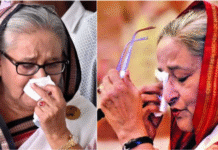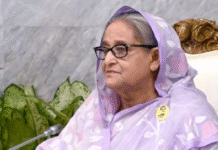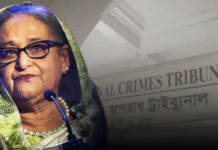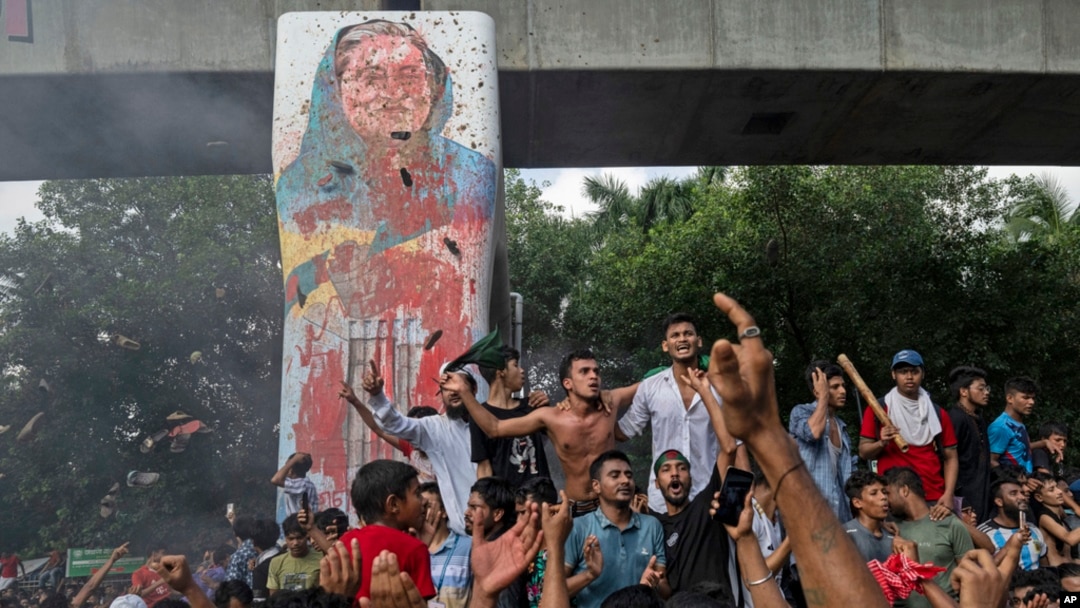
by Ghulam Suhrawardi
At the Threshold of Historic Verdict
17 November will be one of those days in the annals of a nation when the judgment in a single trial can rewrite the political and moral landscape for generations to come. The International Crimes Tribunal (ICT) of Bangladesh will soon hand down its verdict in what is by far the most important crimes-against-humanity case since Bangladesh won independence in 1971. In a historic trial, deposed Prime Minister Sheikh Hasina will find out whether her alleged crimes of August 2024 will end her 30-year reign of impunity. Chief Prosecutor Mohammad Tajul Islam has said to this nation on many occasions that this trial is the materialization of this nation’s promise that no one, no matter how powerful, how close to corridors of power, how protected by privilege or position, can ever escape accountability for crimes of such a scale. His words that the judgment will mark the “end of a long journey” speak to the intense public expectation that, after years of repression, fear, and controlled narratives, this nation might finally see justice delivered.
Charges that Shocked the Nation’s Conscience
The charges against Hasina are neither the political invention of an opposition figure nor the partisan exaggeration of frustrated lawyers. They are grounded in extensive witness testimony, forensic documentation, digital evidence, and intercepted communications. Prosecutor Tajul Islam, over months of detailed arguments in court, has presented to the tribunal and the country evidence of a targeted, violent campaign of mass murder, enforced disappearances, torture, and widespread civilian assaults. When ordinary people, students, teachers, and workers took to the streets across Bangladesh to protest authoritarian rule, security forces and armed party loyalists were unleashed with a ferocity and brutality that the public had not been accustomed to seeing. According to the United Nations accounting, over 1,400 civilians were killed in July and August 2024. They were not killed in moments of chaos or misunderstanding. They were killed because orders were issued from the highest levels of government to break the uprising through overwhelming force. Prosecutor Tajul Islam’s words that the attacks were “coordinated, widespread and systematic” reflect the truth that the violence was not an unfortunate byproduct of civil unrest, but the method through which Hasina attempted to retain power.
Inside the Command Structure: The “Gang of Four”
The evidence presented in court suggests that underlying the brutality of those months was an organized command structure operating in the shadows. Hasina did not simply tolerate violence against her own people; she actively directed it. Meetings were held at Dhanmondi’s official residence of then–Home Minister Asaduzzaman Khan Kamal, where Hasina’s inner circle huddled to direct the crackdown. Prosecutor Tajul Islam described this secretive, shadowy inner group as the “core committee”. It included, along with the prime minister, Home Minister Kamal, Inspector General of Police Chowdhury Abdullah Al-Mamun, and Mayor Sheikh Fazle Noor Taposh. The closed-door deliberations of this group decided who to target, how forcefully to respond to demonstrations, and which districts required “special measures”. The tribunal was shown evidence to suggest this group of four wielded enormous power, bypassing constitutional authority and acting as an unaccountable command center. The chief prosecutor’s words that Hasina was “the nucleus of all crimes” speak to both her political position and her direct operational role in sanctioning violence.
The Telephonic Orders: A Glimpse into Hasina’s Mind
Perhaps the most telling evidence of Hasina’s culpability, and the most powerful evidence of her mindset at the time, was a telephonic recording between the prime minister and her nephew Taposh. In that conversation, prosecutors read in court, Hasina directly ordered helicopter gunfire against protesters. She further ordered security forces to use shoot-to-kill tactics and explicitly authorized the use of lethal force. In the unapologetic tone of her instructions, there was no suggestion that this was the work of rogue officers or extremist elements of her party. The transcript revealed, rather, a leader who perceived dissent as a threat to be annihilated by the full machinery of the state. That recording is among the most powerful pieces of evidence in this case: A sitting prime minister of a country ordering mass murder from the comfort of her secure office.
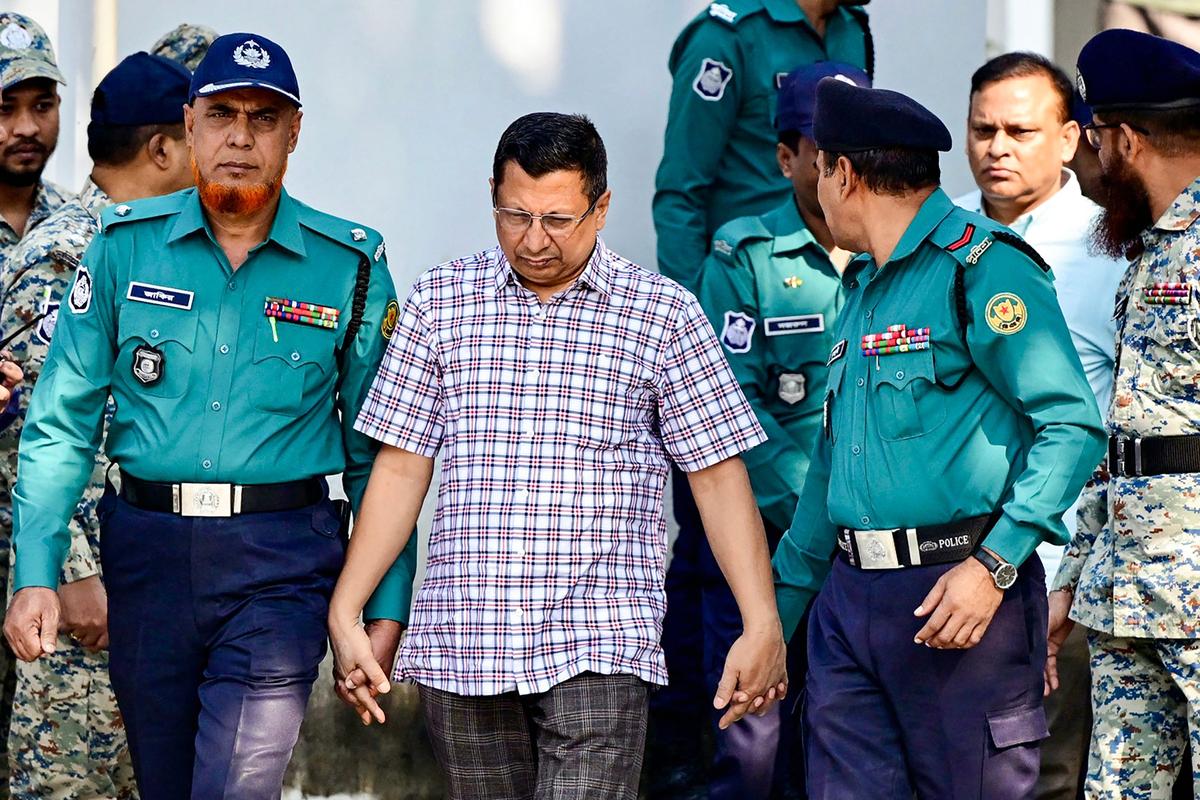
The IGP Who Broke Ranks and Broke Down
One of the most moving and powerful moments of this trial came when the former Inspector General of Police Chowdhury Abdullah Al-Mamun entered the courtroom, not as a defendant but as a state witness. It was the first time in the history of Bangladesh that such a senior law enforcement official had ever testified against his own government in a crimes-against-humanity tribunal. He recounted in public a direct chain of command, described the top-down pressure put on him and other police officers to execute violent crackdowns, and then broke down in tears before the video footage of protester Khokon Chandra Barman, half of whose face was destroyed by a bullet, being shot to death in front of Jatrabari Police Station. His tears indicated not only acknowledgment of the atrocity he had witnessed, but the collapse of the wall of denial that had so long protected the regime.
Hasina’s Desperation: A Last Gasp to Incite the Army
As the uprising grew and nationwide protests made governing nearly impossible, Hasina appears to have resorted to one last measure in a failed attempt to retain power. She tried to incite the Bangladesh Army. Chief Prosecutor Tajul Islam told the tribunal that “Sheikh Hasina tried to create a civil war.” In this desperate measure, in an effort to provoke military intervention either to suppress the protesters or to plunge the country into chaos, Hasina put the nation’s very future at risk. Fortunately, the army refused to carry out her directive. It had the wisdom to understand its duty to the country and the courage to act on its understanding. In a word, the army stood firm, just as the people did. Had they not, Bangladesh might now be descending into internal armed conflict. The refusal of the military and the people to fall prey to incitement prevented a national tragedy of even greater scale.
Exile in India: Refuge or Operational Hub?
After losing power, Hasina fled to India by helicopter. She has remained there under the protection of the Indian government ever since. Her continued presence in India, just next door, and the timing and nature of political violence in Bangladesh today have raised serious questions about her operational role, even from her foreign sanctuary. For more than a decade, New Delhi favored Hasina and her political network over all other options in Dhaka. India supported manipulated elections, turned a blind eye to human rights violations, and helped to normalize the violent suppression of dissent. Hasina’s continued presence in India, combined with the timing and nature of political violence in Bangladesh today, has led many to suspect, quite reasonably, that she may still be attempting to stage operations from this foreign sanctuary. Whether or not these suspicions are ultimately proven, the perception is telling in and of itself. It is the product of a deep, visceral understanding among Bangladeshis that Hasina’s authoritarianism was not purely a domestic project but was instead buttressed and emboldened by a regional power with an interest in maintaining influence in Dhaka.
Bangladeshis Fearing New Wave of Firebombings
In recent weeks, there has been a resurgence of firebomb attacks across the country. A bus driver was gruesomely burned alive inside his own vehicle. These kinds of attacks are historically associated with Hasina’s political networks. The fear is that this represents not random arson or simple vandalism, but rather part of an organized campaign to create chaos, fear, and public doubt about the interim government’s ability to govern. Many Bangladeshis have begun to draw the connection between this political violence and former prime minister Sheikh Hasina’s operation from India. This suspicion is nothing new; it is, in fact, an established pattern of politically motivated arson to destabilize opponents, sow disinformation, and manipulate public sentiment. Even if the ongoing investigations are yet to correctly identify the perpetrators, the widespread public suspicion speaks volumes about the legacy of terror that this former regime has left behind. The fact that a population immediately associates political violence with one particular leader is because that leader’s history fully warrants such an association.
Foreign Networks and the ISKCON Question
The growing public conversation about possible foreign-linked networks operating in Bangladesh, including individuals associated with ISKCON, is also raising important questions. The claims about such foreign networks operating in Bangladesh remain unproven and must remain so until there is compelling evidence to suggest otherwise. The bigger issue at hand is a kind of vulnerability facing any secular republic when it comes to political influence being bought and traded through foreign-backed religious organizations. Bangladesh is a secular republic. Our secular constitution requires that no institution, whether religious, cultural, or social, may operate beyond national law. If any organization is found to be engaged in political manipulation, covert operations, or in any way that undermines or compromises our national security, then a vigorous and transparent investigation must follow. Our democracy is only as strong as the process by which all actors, domestic and foreign alike, are held to well-defined legal bounds.
The Chief Prosecutor’s Statement
Chief Prosecutor Mohammad Tajul Islam gave a statement following the tribunal’s formal reading of the verdict date on November 13, which summed up the mood of the country. Speaking in quiet determination, he said that, however high and mighty a person might be, however many bullets their followers may have, those guilty of crimes against humanity will not escape justice. It was as much a riposte to the crimes of those few months as it was to years of fear that had prevented people from speaking out, from recording the truth, from defying the state and its machinery of repression. His assertion that the verdict will “stand as a precedent for Bangladesh’s future” is an expression of both hope and belief: that this nation may at last break a long cycle of state violence and collective political amnesia.
The Maximum Penalty: A Moral Imperative
Prosecutors have asked the tribunal to impose the maximum sentence permissible under Bangladeshi law. And given the magnitude of Hasina’s crimes, arguments that she morally deserves 1,400 separate death sentences, one for each life extinguished at her order, is not hyperbole but is instead a measure of the catastrophe unleashed by this fallen administration. If the tribunal imposes a single consolidated sentence, as it must, then the scale and savagery of the atrocities still demand the severest possible punishment. Justice must not be symbolic or diluted; it must match the magnitude of the crime.
Regional and International Significance of the Verdict
The tribunal’s decision will have reverberations far beyond the country. It will send a message to regional powers, international institutions, and future leaders that political alliance or ties to power cannot forever shield perpetrators of mass murder. South Asia has for too long been home to too many leaders who believed authoritarian rule, foreign backing, and electoral manipulation were an ironclad ticket to impunity. A fair and firm verdict in this case will demonstrate that crimes against humanity have no expiration date and that no external power can indefinitely protect a fallen tyrant.
Conclusion: A Nation at a Pivotal Crossroads
Bangladesh is now at a critical moment. The verdict of 17 November will either mark this nation’s commitment to a long-delayed justice, or it will betray the sacrifices of the thousands who rose against tyranny just one year ago. No matter the political pressure or external interference from remnants at home or foreign havens, this trial must and should move forward with transparency, independence, and integrity that will stand up to any future review. The youth who were killed, the families who continue to grieve, and the children and future generations who will inherit this country deserve nothing less.
This moment is more than a legal proceeding. It is a moral reckoning. Bangladesh must seize it. The only way for this nation to confront this dark chapter with honesty and courage is to build a future in which no leader ever again wields power as a license to kill, in which justice and not fear prevails, and in which the dignity of the Bangladeshi people is fortified above all.
The author is the Publisher of the South Asia Journal.

